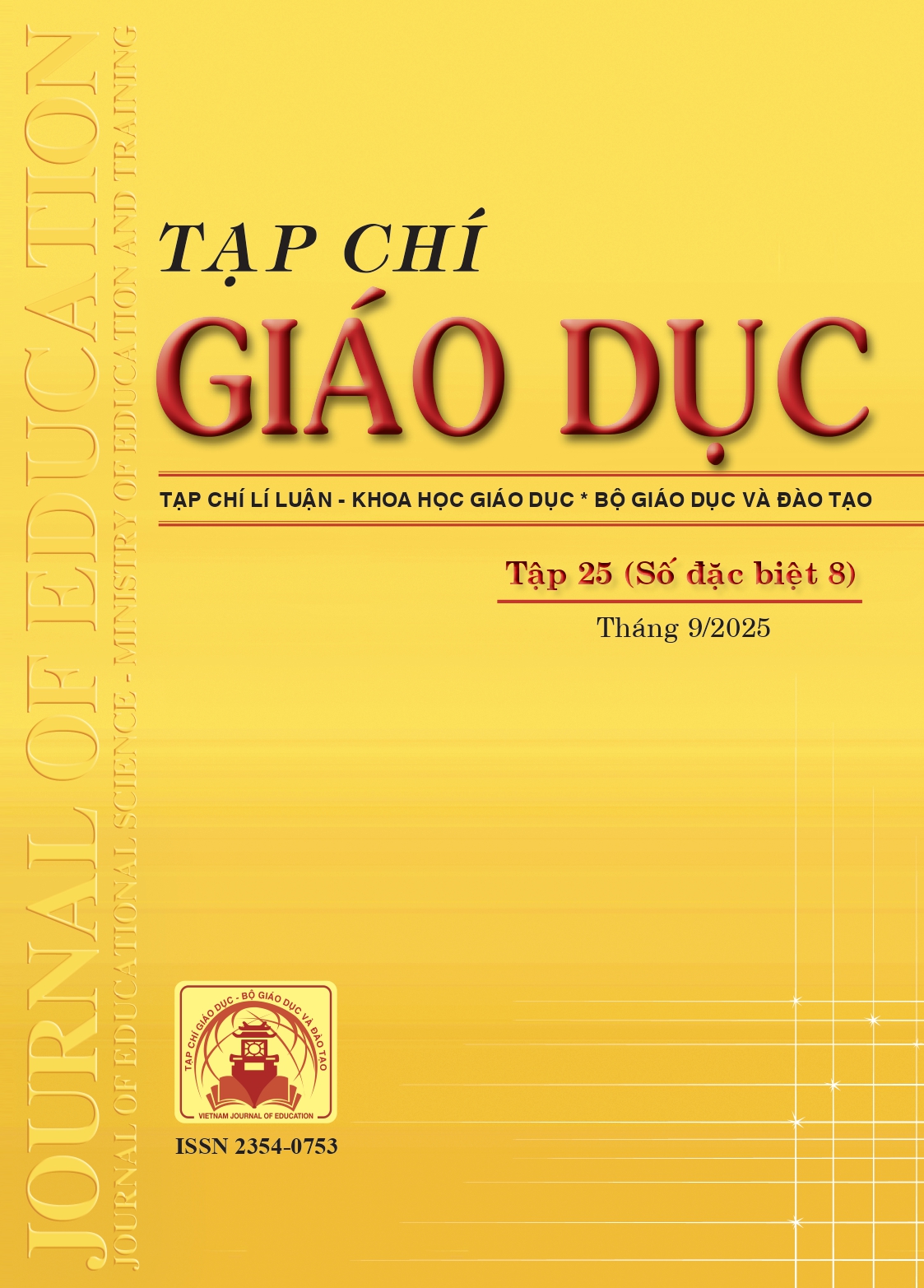Thực trạng hoạt động dạy học nội dung giáo dục địa phương ở các trường trung học phổ thông thuộc quận Ninh Kiều, Thành phố Cần Thơ
Tóm tắt
Local education content in the 2018 General Education Program is identified as a compulsory, independent learning component, aiming to contribute to the development of students' qualities and competences through providing an indepth understanding of the cultural, historical, economic, social, and environmental characteristics of the locality. This article assesses the current status of teaching local education content in high schools in Ninh Kieu District, Can Tho City. Based on a survey of 80 managers and teachers using a questionnaire survey method, the research results show that teaching activities of this content are currently assessed to meet the requirements in the following aspects: objectives, program content, procedures, forms of teaching organization, and testing and evaluation. However, the conditions of the facilities and equipment for teaching are still limited, only partially meeting the program's requirements. The research results provide a crucial practical basis for educational managers and general education institutions to propose solutions that improve the quality and effectiveness of implementing local educational content in the next phase.
Tài liệu tham khảo
Aktekin, S. (2010). The Place of Local History in the Secondary History Education. Journal of Theory and Practice in Education, 6(1), 86-105.
Anui & Arphattananon, T. (2021). Ethnic content integration and local curriculum in Myanmar. Austrian Journal of South-East Asian Studies, 14(2), 155-172. https://doi.org/10.14764/10.ASEAS-0060
Beena, R. C. G. (2024). Innovations in teaching practices. International Research Journal on Advanced Engineering and Management, 2(05), 1469-1471. https://doi.org/10.47392/irjaem.2024.0198
Black, J., & MacRaild, D. M. (2000). Studying History (How to Study). Hampshire, Palgrave.
Bộ GD-ĐT (2018). Chương trình Giáo dục phổ thông - Chương trình tổng thể (ban hành kèm theo Thông tư số 32/2018/TT-BGDĐT của Bộ trưởng Bộ GD-ĐT).
Bùi Thanh Thủy, Hồ Thị Hồng Vân, Võ Thanh Hà, Lê Anh Tuấn, Đặng Minh Phượng (2024). Thực trạng triển khai tài liệu giáo dục địa phương lớp 10 năm học 2022-2023. Tạp chí Khoa học Giáo dục Việt Nam, 20(2), 37-42.
Đào Văn Toàn, Bùi Diệu Quỳnh, Lê Thị Sông Hương (2019). Định hướng xây dựng nội dung giáo dục địa phương theo Chương trình Giáo dục phổ thông mới. Tạp chí Khoa học Giáo dục Việt Nam, 22, 84-88.
Đỗ Thị Ngọc Hiền (2024). Kinh nghiệm quốc tế về xây dựng và triển khai chủ đề dạy học nội dung giáo dục địa phương và bài học kinh nghiệm cho Việt Nam. Tạp chí Giáo dục, 24(số đặc biệt 10), 345-351.
Goksu, M. M., & Somen, T. (2019). History Teachers’ views on using local history. European Journal of Education Studies, 6(2), 253-274. https://doi.org/10.46827/ejes.v0i0.2436
Raguindin, P. Z. J. (2020). Integrating concepts and expressions of inclusion in the K-curriculum: the case of the Philippines. European Journal of Educational Research, 9, 305-317. https://doi.org/10.12973/eu-jer.9.1.305
Scoffham, S. (2011). Core knowledge in the revised curriculum. Geography, 96(3), 124-130. https://doi.org/10.1080/00167487.2011.12094322
Tomcikova, I. (2005). Field trips and excursions to local landscape in teaching Homeland studies and Geography at primary school. Disputationes Scientificae, 1, 74-81 (in Slovak).
Đã Xuất bản
Cách trích dẫn
Số
Chuyên mục
Giấy phép

Tác phẩm này được cấp phép theo Ghi nhận tác giả của Creative Commons Giấy phép quốc tế 4.0 .












